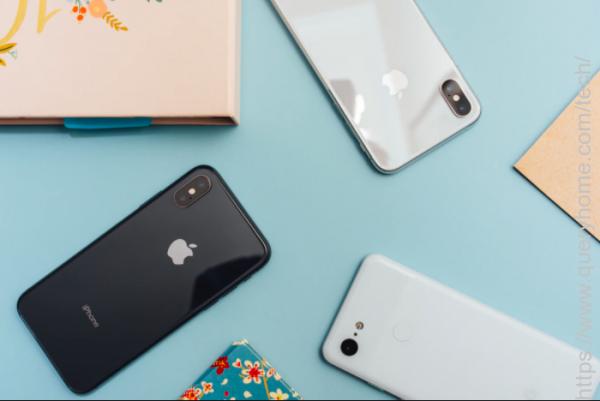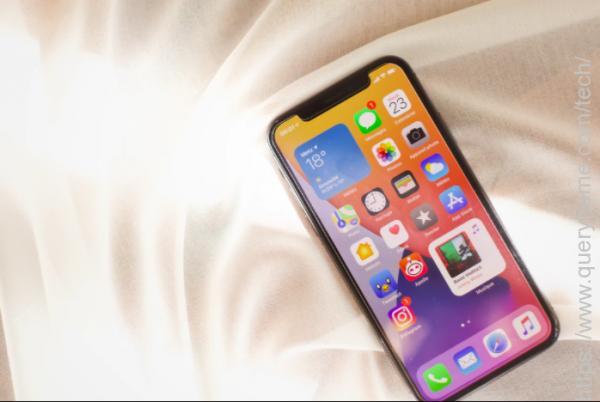
The smartphone market was once dominated by Blackberry, Symbian, and Windows Mobile. These devices came with relatively small screens, resistive touchscreens and physical keyboards. Compared to today’s devices, they were slow, clunky, and difficult to use.
Playing games was near-impossible and downloading “apps” was nothing like the experience it is today.
With so many limitations, smartphones of the early 2000s were mostly limited to business people and enthusiasts. However, this all changed in 2007 when Apple released the first iPhone, completely changing the market forever.
Within a couple of years, Android and iOS had evolved considerably, creating a duopoly in smartphones that ultimately wiped Microsoft, Blackberry and Symbian from the market. Both operating systems have developed cult followings that passionately defend the features, virtues, and ecosystems of their chosen brand.
Apple has firmly positioned the iPhone as a premium product that is well made and incorporates privacy throughout. Meanwhile, Google opted to make Android open-source, allowing developers and users much more freedom. For this reason, you can find budget and high-end Android devices, as well as ones that sit somewhere in between.
But which one is better? When it’s time to upgrade, which smartphone should you buy?
Choice of Apps
Both the Apple App Store and Google Play Stores have been around for about a decade now. Both contain many of the same apps, including most popular social networks, streaming services, and office suites.
You will sometimes find that a company may only release an app for one ecosystem, though this may be temporary, releasing one first before porting it to the other.
There are also many more independently-developed apps available for Android smartphones than iPhone because the requirements for publication are typically lower. Quantity doesn’t necessarily mean quality, but you should still manage to find everything you’re looking for regardless of the smartphone you buy.
Games
Like with other apps, the gaming experience is pretty similar on both platforms. Both app stores have around one million games in them, offering a broad selection of genres that cater to all tastes. For example, those that enjoy online versions of classic casino games like blackjack and roulette will find brands that offer both iPhone and Android apps. Similarly, fans of battle royale games like PUBG Mobile and Call of Duty: Mobile will find them available on both platforms.
The iPhone does give you access to Apple Arcade, a subscription service that grants you unlimited access to microtransaction-free and ad-free games that are often not available on Android.
iPhone users can also be more confident that they’ll get a good gaming experience, regardless of the model they own, because there are no severely under-powered iPhones on the market, while some Android devices may struggle with larger games.

Cost
In almost all cases, Android smartphones are cheaper than iPhones. Apple deliberately positions its products to be seen as “premium”, allowing it to charge more for them. You generally do get what you pay for though; iPhones are well-made, polished devices that work right out of the box.
That said, Android devices have come a long way in the last five years or so. Devices from brands like Samsung and OnePlus offer similar levels of quality to the iPhone and can often be bought for less.
If you’re on a budget, then an Android device will likely be a better option as there are many handsets that can be bought cheaply.
Camera
Smartphone cameras have been the area to see the most upgrades in recent years. After countless models that featured a single lens on the front and on the rear, they began multiplying with two rear lenses, then three, then four.
More recently, Apple added a LIDAR sensor to the back of its iPhones, allowing users to take photographs with more depth. Oppo, a manufacturer of Android devices even added a microscope to its Find X3 that lets you look at objects very close up with 60-times magnification.
Again though, the quality of smartphone cameras in comparative iPhones and Android devices are roughly the same. While Apple typically uses lower megapixel sensors, it has software that can produce images of similar quality to the latest Samsung and OnePlus handsets.
In Conclusion
While a few years ago, there was a big difference between iPhone and Android devices, the two are very similar today. Whatever you buy, both will work just fine, grant you access to most of the same apps, play most of the same games, and take equally great photos. Therefore, price and brand loyalty will be the only deciding factor for most buyers.
